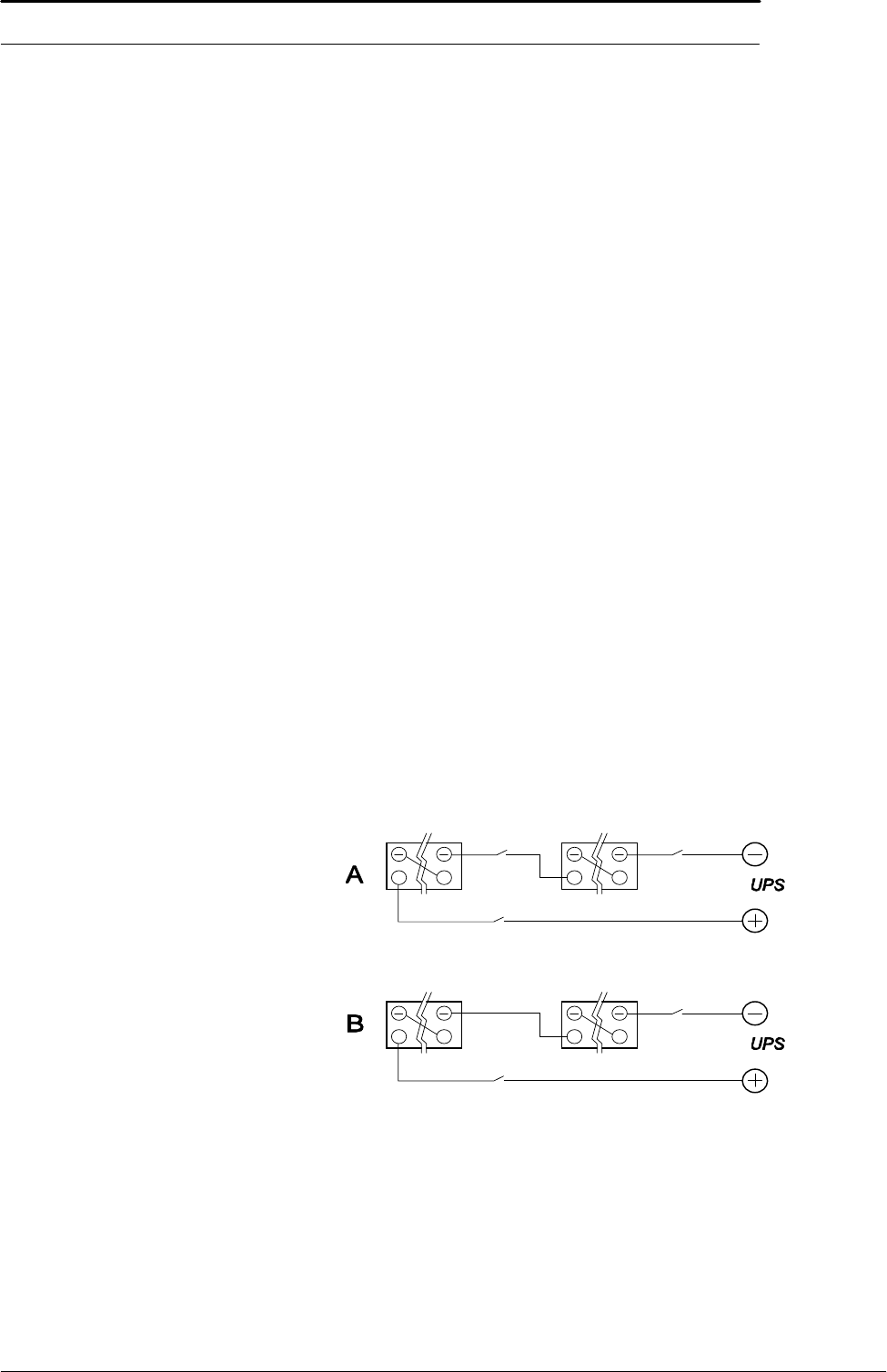
User Manual
Hipulse - Single Phase ‘1+N’ UPS System 130 kVA - 110V
52
6.8 Battery Installation
Whatever the type of mounting system selected, following conditions should be noted:
Layout of the cells:
Whatever battery mounting system is used, the batteries should be laid out in such a
manner as to make simultaneous contact with two exposed live parts having a
potential greater than 150V impossible. Where this is not possible, insulated terminal
shields must be installed and insulated cable must be used for connection.
Service platform:
The service platform (or duckboard) must be slip-proof, insulated from the floor and
be at least one meter wide.
Connections:
All connections must be as short as possible.
Battery Protection Circuit Breaker:
A battery circuit breaker is generally installed in an enclosure of the wall close to the
battery installation. The connection of the circuit breaker box available for the Hi-
pulse is described in the following paragraph.
6.9 Battery circuit breaker:
The Battery circuit breaker is fitted inside the Input Transformer cubical along with its
control board and is used to connect the battery to the UPS in installations where the
batteries are not contained in the standard battery cabinet.
Usually the breaker is fitted as close as possible to the batteries. Figure 6-3 shows
details of the power and control cable connections between the circuit breaker or
battery cabinet and the UPS itself. Two methods of connecting the three pole battery
circuit breaker are illustrated in figure 6-2. Method A shows the spare pole being used
to divide the battery bank in half, thereby reducing the battery total voltage to half
when the circuit breaker is open during servicing etc. Method B connects the spare
pole in series with the positive connection, thereby providing two sets of contacts in
the positive line as an added safety precaution.
When installing the battery
cabinet remove the battery fuse
In the UPS before making the
battery circuit breaker power
connections.
+ + + +
+ + + +
A - Half potential switching method
B - Double positive pole method
96 Cells 96 Cells
96 Cells 96 Cells
Figure 6-2: Battery C/B layout of switching poles


















